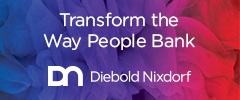
MEET THE TEAM: INTERNATIONAL WOMEN’S DAY 2019 SPECIAL EDITION
Tuesday, March 12, 2019
View ShowroomAs part of International Women’s Day 2019, we spoke to some of our employees at Auriga to find out their thoughts on fintech and the future of banking.
Rosvanna D’Amico is one of Auriga’s Product Engineers, looking after our ATM & ASD software WinWebServer (WWS) solutions
Q. According to you, how important is diversity in developing great fintech/banking tech?
I think it’s very important to develop diverse teams, inclusive of varying gender, race and culture as well as people with disabilities and/or impairments. Everyone deserves the chance to develop their talents and skills and to work in a safe and supportive environment. I truly believe diversity in the workplace makes us more creative, innovative and diligent in addition to enabling teams to be better at problem-solving.
Q. There are a shortage of people with digital engineers and managerial skills. How can we encourage more young women to pursue a career in fintech/banking tech?
Industry collaboration with schools and universities can help raise awareness of the exciting opportunities available in fintech and encourage girls and young women to consider a career in the industry.
Q. How were you inspired to work in fintech/banking tech?
I have a strong passion for problem-solving and tackling challenges head-on. In fintech, challenges are a daily occurrence.
Q. According to you, what do high street banks need to prioritise in the coming years?
Transformation. Banks need to re-assess and re-define their business models and work harder at developing truly customer-centric organisations – ones that allow them to meet changing consumer expectations and improve consumer choice, such as by allowing them to customize products and services. Banks also need to keep pace with new, innovative technologies, whether that be smart devices, biometric fingerprint identification etc. They also of course need to keep in mind PSD2 and the opportunities it is opening up for the industry.
Ségolène Darut is Auriga’s Marketing & Communication Manager
Q. According to you, how important is diversity in developing great fintech/banking tech?
Diversity is hugely important in the development of great fintech/banking tech. How can technology continue to deprive itself of the potential of more than half of the world's population? Collaboration is key to success.
Social and cultural stereotypes often create barriers for women wanting to go into STEM and progress their careers in companies which are composed mainly of men. I often ask myself how much longer we will have to keep writing and talking about gender diversity representation in business.
In fintech/banking tech, design and development of technology has traditionally been done by men, and that hasn’t really changed even though we are in 2019. We have to ask ourselves why. I think we should be focusing on educating children to reject gender stereotypes.
As a society, we also need to ensure we are helping young girls get trained and secure any particularly useful qualifications for a career in tech. With such radical transformation happening all around us, we need to ensure there are enough skilled people entering the tech industry and that we are closing the gender gap in tech too.
Q. There are a shortage of people with digital engineers and managerial skills. How can we encourage more young women to pursue a career in fintech/banking tech?
From an early age, in the family or in school, we do not value the same qualities in girls and boys. Lots of girls can be put off going into scientific and technological fields because of stereotypes around certain sectors being seen as more ‘masculine’ or ‘feminine’, and often doubt their abilities and technical skills. I think schools could be doing more to encourage girls and boys to fully explore all the career paths available to them, particularly when it comes to students whose parents or grandparents play a role in discouraging girls away from more technical careers, either consciously or subconsciously.
Q. How were you inspired to work in fintech/banking tech?
I graduated in Work Organisational & Personal Psychology. I didn’t actually consider a career in fintech/banking tech when I was starting out. However, my line of work suits me really well. The industry is ever-changing. It is always throwing up new challenges, and I love to be constantly challenged and continually learning.
Q. According to you, what do high street banks need to prioritise in the coming years?
Big Data, artificial intelligence and automation to name a few. Such technologies are shaping the way we will bank tomorrow. Digital transformation is necessary, but is not making humans redundant. Banks must not dismiss the value of human competencies and need to strategic investments in people.
Chiara De Felice is a Delivery Manager for Auriga’s Virtual Banking products
Q. According to you, how important is diversity in developing great fintech/banking tech?
Diversity is hugely valuable and having a range of perspectives and outlooks is vitally important. Despite widespread acknowledgment that traditional gender stereotypes are outdated, right now there remains a gender gap in the banking industry. The percentage of women in both hardware and software development, and tech more generally, is low indeed. Much of the tech we use today has been designed by representatives from one gender. A joint contribution to tech developments that takes into account the ideas of both men and women is crucial to the design of great fintech and banking technology.
Q. There are a shortage of people with digital engineers and managerial skills. How can we encourage more young women to pursue a career in fintech/banking tech?
A great barrier to overcome is the stereotype that women attribute to themselves. It is important to start encouraging young women, from their early school years, to develop their potential in the sectors which they consider to be of great interest, and reject the idea that some careers are more suited to men than women and vice versa. Until we do more to break down such stereotypes, it’s not likely we’ll see change. Moreover, it’s important to raise awareness of unconscious bias in the workplace, gender bias or otherwise, to ensure we have work environments where employees are evaluated on relevant criteria like work performance and team contribution and not their gender.
Q. How were you inspired to work in fintech/banking tech?
I wanted to work somewhere that crossed economic, social and technological fields. Banking is not niche – it is at the heart of society and the fintech/banking space is constantly changing. I love the fact that banking needs to take into account the demands of customers in the present while also keeping pace with innovation and taking note of future trends. It’s fascinating.
Q. According to you, what do high street banks need to prioritise in the coming years?
Big Data and artificial intelligence are two big ones. But the key priority should be accessibility. That goal has not been fully achieved yet. One of the great things about technology is how it can help break down barriers, improve accessibility and drive inclusivity.
Maria Ludovico is Auriga’s Head of Delivery & Support
Q. According to you, how important is diversity in developing great fintech/banking tech?
Diversity is a very important element of developing great banking technology – it allows you to bring a range of ideas to the table, helping evolve as a business and keep pace with innovation. Technological innovation in the form of Big Data, data science, chatbots and more is radically changing the financial sector. Real digital transformation is happening and that is affecting every way users interact with their banks and the services they receive.
Q. There are a shortage of people with digital engineers and managerial skills. How can we encourage more young women to pursue a career in fintech/banking tech?
We should do all we can to inspire greater self-esteem in women by encouraging them to be ambitious, not give-up at the first hurdle and to believe in themselves and their abilities.
Q. How were you inspired to work in fintech/banking tech?
I was inspired by the fact that it is a constantly evolving field. Every day I feel a strong desire to learn more about new technologies and come up with new solutions that can facilitate and advance my field, such as ways to improve consumer satisfaction in banking.
Q. According to you, what do high street banks need to prioritise in the coming years?
The bank as our parents knew is disappearing. Banks have to take advantage of new technologies and improve branch efficiency if they want to respond faster and more intelligently to their customers’ needs.
Rosa Sarcina is a Technical Account Manager at Auriga
Q. According to you, how important is diversity in developing great fintech/banking tech?
I believe that diversity is extremely important for businesses’ growth, especially when it comes to the development of great fintech/banking technologies which are more dependent on creative and innovative thinking. The fintech/banking community is all about problem-solving, and you’re only as good as the perspectives you have when solving problems. If you're not able to ensure you have inclusive environments where all genders (and different types of people) can flourish, then you've got no chance at building technology that actually does good.
Q. There are a shortage of people with digital engineers and managerial skills. How can we encourage more young women to pursue a career in fintech/banking tech?
Women have a lot to offer in the fintech/banking tech industry. We should encourage more young women to pursue a career in this area by presenting examples of the types of work they can get involved in, from the development of new disruptive technologies to strategizing how banks should renew their offerings and adapt to change.
Q. How were you inspired to work in fintech/banking tech?
Technology has been a major passion of mine from a young age. When I entered the world of work I found myself among a spate of emerging technologies and a lot of talk from banks about how they were ready to invest in change. That inspired me to really dive in. I’ve now been in this sector 15 years, and I haven’t looked back!
Q. According to you, what do high street banks need to prioritise in the coming years?
In my opinion there are three main priorities banks should focus on over the next few years. The first is Open Banking, which is the improving customer experience by allowing customers to be able share their financial data with third parties, meaning they can benefit from useful services they may not have otherwise had access to. Thanks to European regulations such as PSD2 and GDPR, high street banks are protected and encouraged to move in this direction. Secondly, but no less importantly, is the move to the cloud. The third is branch transformation – particularly moving banks’ focus to higher value activities as other tasks migrate to self-service devices.
Antonella Comes is Auriga’s Chief Marketing Officer
Q. According to you, how important is diversity in developing great fintech/banking tech?
In my opinion, a reduction in the gender gap within fintech/banking tech is essential to developing the sector. Fortunately, there is a lot of technology available right now that is providing new tools to enhance cooperation and collaboration, both among colleagues and customers. And equally, I believe that giving women more opportunity to have their say can improve the technology itself, as having greater female representation creates a greater feed of ideas and perspectives.
It goes without saying though that gender equality is important in every sector, and not just from a moral perspective. It is diverse organisations – which draw on a variety of talented personnel – that will remain competitive and prosper.
Q. There are a shortage of people with digital engineers and managerial skills. How can we encourage more young women to pursue a career in fintech/banking tech?
The number of women who choose to continue their studies in technology is growing but is not enough. Europe's competitiveness depends on the ability to attract and retain skilled workers, especially in the ICT sector, but only one in five IT experts is a woman. What is needed above all is a change in culture, not only socially, but in the corporate sphere. Unfortunately, there is all too often a prevalence of outdated stereotypes, such as that women aren’t capable of managerial roles in banking. In my opinion changing such cultures by starting at the beginning of the career ladder. Schools must inspire young women and introduce them to working professionals who can act as role models they can aspire to be like in later life. We must then break down the barriers that prevent women from making their mark on the digital world, abandoning stereotypes and giving visibility to women in fintech/banking tech.
Q. How were you inspired to work in fintech/banking tech?
Personally, what inspired me was the desire to apply my knowledge of marketing and communications to such a wonderfully complex and challenging sector. Working at Auriga has offered me the chance to interact with big banks shaped by innovation and digital transformation, organisations who have taught me so much and who continue to do so. It is exciting to be able to work with customers to develop new solutions and products and also see how fast the financial sector is changing.
Q. According to you, what do high street banks need to prioritise in the coming years?
There are several challenges. Banks must be willing to adapt, try new technologies and collaborate to succeed in what will prove to be another highly competitive and rapidly evolving year for the banking sector. Open Banking and PSD2 are certainly a priority for banks, which should try to monetise and share their customers' data with third parties, such as fintechs, and collaborate to create innovative offers. The progress on Open Banking and PSD2 has been slow so far though and the full range of threats and opportunities is yet to be realised.
This is especially true if you think about digital natives trying to balance their demand for easy-to-use integrated services (such as account integrators and budgeting apps) with data privacy concerns. Financial institutions will have to think creatively and take advantage of new technologies to deliver the right solutions at the right time to their customers.
We are in a global market in slow but constant evolution. There are new realities ahead. In all cases we see univocal trends that drive innovation and that will affect all institutions. The opportunities offered by new technologies are an important competitive element, those who will be able to catch them better and faster will certainly gain an advantage over the others.
Maria Paola Resta is Auriga’s HR Manager
Q. According to you, how important is diversity in developing great fintech/banking tech?
Gender diversity is fundamental to creative thinking and fostering innovation, especially in the context of the fintech/banking sector, which has historically been characterized by a marked gender gap and where women are still a minority. Today the most successful organisations operating in the industry are the ones that source a variety of perspectives, approaches and subject matter experts different from their own in order to generate new ideas and come up with ways to continually improve and develop.
Q. There are a shortage of people with digital engineers and managerial skills. How can we encourage more young women to pursue a career in fintech/banking tech?
We need a change of mindset away from the idea that certain lines of work are more suitable for one gender over another, and that one gender over another is more likely to be highly successful in that field than another. If we can break such stereotypes, parents, educators and counsellors, we can make headway in closing the gender gap within the industry.
Q. How were you inspired to work in fintech/banking tech?
In the fintech/banking tech sector, skills are key assets, so there is a lot of training goes on and always lots to get my teeth into. I enjoy both the responsibility of serving the needs of my company and staying atop of evolving working methods and core competencies. Supporting and directing HR allows me to spearhead the creation of great working environments in which people can express themselves and develop their talents. What satisfies me most is the creative component, something particularly important in a constantly evolving sector.
Q. According to you, what do high street banks need to prioritise in the coming years?
2018 was an important year for the banking market. New market players and the so-called ‘challenger banks’ have achieved large customer bases and have begun to emerge from their niche, making their offers more mainstream. 2019 will be another important year for this sector as there are several challenges and opportunities ahead.
Growing competition will push banks to differentiate their offers to drive growth. However, with rising customer expectations and ever-changing demands, financial institutions are realising the benefits of working together to achieve their goals. Through collaboration, customers can get the best from both worlds. Fintech can expand its offer, while traditional banks can maintain their market share and adopt new services among their existing portfolios. In 2019, banks cannot limit themselves to aggregating financial services but, explore the possibilities arising from Open Banking, and develop a broader offer of services. New models of fully digital banks are being born in traditional banks – as they have in the case of RBS, which enlisted the expertise of Starling to develop its own digital bank Bo. These models could co-exist across Europe, as they are already in the UK.
Valentina Baldo is a Key Account Manager at Auriga
Q. According to you, how important is diversity in developing great fintech/banking tech?
Fintech/banking tech environments have more female representation now than compared to several years ago, but there is still so much that can be done. I recently read analysis that revealed how much companies with a better balance of genders are more likely to achieve better financial results. It’s important to close the gender gap throughout fintech/banking tech, but particularly at management level, in order to drive company growth. Further to this, organisations should promote flexible working to support employees starting a family or those with young children.
Q. There are a shortage of people with digital engineers and managerial skills. How can we encourage more young women to pursue a career in fintech/banking tech?
We need to abandon the stereotype that women are less technologically-minded than men. Young women also need role models that they can feel truly inspired by. We need to raise awareness of successful female leaders from a variety of sectors throughout history, for example by giving women the same visibility and media resonance that male role models have.
Q. How were you inspired to work in fintech/banking tech?
Fintech/banking tech offers a variety of exciting jobs fundamental to our economy and society. I fell into it, but once I started I got involved in a lot very quickly which was great. There are fewer women working in my sector than men, but I view this as an opportunity rather than a disadvantage.
Q. According to you, what do high street banks need to prioritise in the coming years?
They should definitely continue focusing on Open Banking to improve communication with their customers. Banks can no longer get away with offering the same standard services they were 10 years ago – they need to improve customer experience, for example by offering customers the use of self-service devices for basic services, like paying in a cheque, leaving staff to focus on higher value tasks such as complex customer service queries.
Investing in mobile banking is very important too. So many people now depend on being able to access banking services from their smartphone or tablet, especially younger generations as the mobile channel offers such speed and convenience.
Banks also need to prioritise security, for example by investing in new technology such as biometrics to keep information confidential and cash safe.
Additional Resources from Auriga
- 1/15/2024 - What 2024 has in store for Retail Banking
- 12/20/2023 - The future of Cash Management
- 7/14/2023 - The future of ATM and Self-Service Branch Automation
- Show All Auriga White Papers
- 4/19/2024 - Auriga expands the UK team with Banking Self Service Tech Veteran
- 3/13/2024 - Nationwide in UK selects Auriga to modernise its ATM channel
- 3/12/2024 - World’s Biggest Building Society Selects Auriga to Modernise its ATM Channel
- 3/11/2024 - Auriga rebrands F1 Solutions as Auriga Poland to Drive Growth & Innovation
- 2/19/2024 - Harnessing the power of AI in banking
- Show All Auriga Press Releases / Blog Posts



























